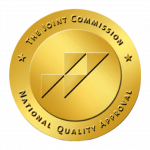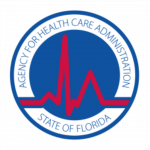Tramadol is an analgesic drug, also known as a pain reliever or often spoken of as opiate-like. It’s a type of medication that affects the way the central nervous system (CNS) perceives, as well as responds to painful stimuli by altering how certain nerve cells in the spinal cord respond to them. In effect, tramadol can lead to substance use disorder and individuals may have withdrawals after discontinuing use.
Tramadol is not as potent as other painkillers, but it still has the ability to cause drug addiction. Individuals who abuse tramadol may do the following:
- attempt to get multiple prescriptions or “doctor shop”
- combine tramadol with other drugs
- consume tramadol in a different way than a doctor prescribes
Individuals who have a history of substance abuse are at a higher risk of becoming addicted to Tramadol. If you or a family member have a history of substance use disorders, always speak to your doctor when they prescribe any kind of painkiller.
Signs of Tramadol Abuse
Due to Tramadol’s lower opioid content, this can give people a false sense of security. It’s important to know that Tramadol can be habit-forming and addictive. Some signs of an individual abusing Tramadol include:
- Pinpoint or small pupils
- Appetite changes
- Upset stomach or vomiting
- Drowsy
- Slurred speech
- Headaches
- Impaired coordination
- Trouble at work or school
- Difficulty sleeping or staying awake
- Physical symptoms from injecting the drug
- Anxiety/depression
There are other dangers associated with abusing tramadol or taking large doses. For example seizures, overdose, or death.
Withdrawal Symptoms
It can be difficult to detox from this medication without the assistance of a professional. Individuals who have abused Tramadol, or opioid-based drugs, for a long period of time often experience severe withdrawal symptoms. Thus, making it very difficult to resist the urge to relapse back into addiction. Some individuals will experience:
- Anxiety
- Tremors/Shaking
- Difficulty sleeping
- Depression
- Hallucinations
- Irritability
- Flu-Like aches and pains
- Tingling
- Detox
Tramadol addiction treatment programs usually begin in a medical facility where they can monitor and supervise you through the first step of recovery, and detox. You may experience withdrawal symptoms during this time, which doctors will assist you in treating. During withdrawal, your body adjusts to not having the drug anymore.
Treatment for Tramadol Abuse or Addiction
Following Detox, it is recommended that individuals go to a drug rehab or treatment center. This allows addiction professionals to address addiction’s underlying causes, and help you or your loved one break the addiction. Cognitive-behavioral therapy and other treatment options can help individuals have lasting sobriety. Support groups and therapy with family members can also help the individual to recover long-term.
If an individual has co-occurring disorders this can also be treated. Oftentimes, those with drug abuse may have mental health disorders as well or addiction to multiple substances. Addiction recovery is possible with the right treatment programs and mental health services.
If you are concerned about someone abusing Tramadol, Harm Reduction Center in Boynton Beach can help. Our experience, as well as our medical professionals, can help you or a loved one find lasting recovery.
Support groups and Follow Up Care
Support groups allow users to stay on the correct path after they have completed treatment and also allow continuous care for many years. Finding the right group or community is the key for individuals to guide each other and keep up sobriety. Various different support groups have been provided specifically to different substances.
12 step programs like Alcoholics Anonymous, have traditionally been considered the way towards recovering. SMART Recovery is a popular alternative to 12-Step support groups. It teaches people in recovery how to control addictive behaviors by addressing the underlying thoughts. Furthermore, providing support for people involved in recovery.
At Harm Reduction Center we offer alumni groups and events for individuals who wish to continue staying active and involved in their recovery. This is just one way we provide a different experience than other rehabs. We are committed to our client’s long-term success and provide support, resources, and follow-up care. Contact us today if you have questions or concerns.














